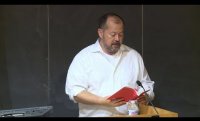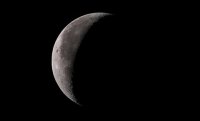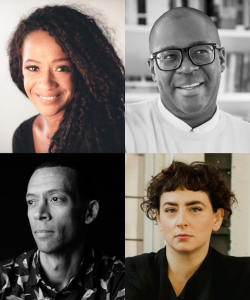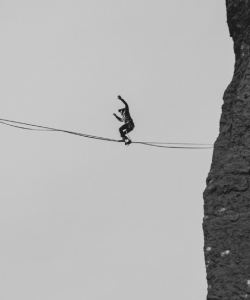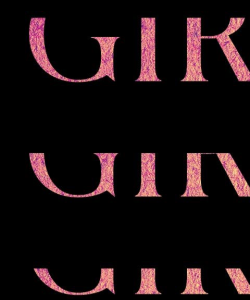Consider setting aside time this holiday season to submit to the last writing contests of the year. With deadlines of either December 30 or December 31, these awards, all of which offer a cash prize of at least $500, include opportunities for both manuscripts and published works. Plus, six of the contests require no entry fee.
Black Caucus of the American Library Association Literary Awards: Four prizes of $500 each are given annually for a poetry collection, a first novel, a book of fiction, and a book of nonfiction (including creative nonfiction) by African American writers published in the United States in the previous year. The awards honor books that depict the “cultural, historical, and sociopolitical aspects of the Black Diaspora.” Publishers may nominate books published in 2020. Deadline: December 31. Entry fee: none.
Boulevard Short Fiction Contest for Emerging Writers: A prize of $1,500 and publication in Boulevard is given annually for a short story by a writer who has not published a nationally distributed book. The editors will judge. All entries are considered for publication. Deadline: December 31. Entry fee: $16 (includes subscription).
Cleveland Foundation Anisfield-Wolf Book Awards: Three to four prizes of $10,000 each are given annually for a poetry collection, a book of fiction, and a book of nonfiction (including creative nonfiction) published during the previous year that “contribute to our understanding of racism and appreciation of cultural diversity.” Rita Dove, Henry Louis Gates Jr., Joyce Carol Oates, Steven Pinker, and Simon Schama will judge. Deadline: December 31. Entry fee: none.
Codhill Press Poetry Award: A prize of $1,000, publication by Codhill Press, and 25 author copies is given annually for a poetry collection. James Sherwood will judge. All entries are considered for publication. Deadline: December 30. Entry fee: $30.
Crosswinds Poetry Contest: A prize of $1,000 and publication in Crosswinds is given annually for a single poem. Margaret Gibson will judge. All entries are considered for publication. Deadline: December 31. Entry fee: $20.
Florida Review Jeanne Leiby Memorial Chapbook Award: A prize of $1,000 and publication by Florida Review is given annually for a chapbook of short fiction, short nonfiction, or graphic narrative. All entries are considered for publication. Deadline: December 31. Entry fee: $25.
Griffin Trust for Excellence in Poetry Griffin Poetry Prize: Two prizes of $65,000 CAD (approximately $50,824) each are given annually for poetry collections published during the previous year by a Canadian poet or translator and by an international poet or translator. Finalists in each category receive $10,000 CAD (approximately $7,820) for their participation in the Griffin Poetry Prize Shortlist Readings held in Toronto. Deadline: December 31. Entry fee: none.
Kallisto Gaia Press Acacia Fiction Prize: A prize of $1,200 and publication by Kallisto Gaia Press is given annually for a collection of short works of fiction. Richard Z. Santos will judge. Deadline: December 31. Entry fee: $25 (includes a copy of the winning collection).
Kallisto Gaia Press Saguaro Poetry Prize: A prize of $1,200 and publication by Kallisto Gaia Press is given annually for a poetry chapbook. ire’ne lara silva will judge. Deadline: December 31. Entry fee: $25 (includes a copy of the winning collection).
Lascaux Review Prize in Short Fiction: A prize of $1,000 and publication in Lascaux Review is given annually for a short story. Previously published and unpublished stories are eligible. All entries are considered for publication. Deadline: December 31. Entry fee: $15.
LitMag Virginia Woolf Award for Short Fiction: A prize of $2,500 and publication in LitMag is given annually for a short story. The winner will have their work reviewed by agents from Bankoff Collaborative, the Bent Agency, Brandt & Hochman, Folio Literary Management, InkWell Management, Sobel Weber Associates, and Triangle House Literary. The editors will judge. All entries are considered for publication. Deadline: December 31. Entry fee: $20.
Moth Poetry Prize: A prize of €6,000 (approximately $7,342) and publication in the Moth is given annually for a single poem. Three runner-up prizes of €1,000 (approximately $1,224) each are also given. The four shortlisted poets, including the winner, will also be invited to read at an awards ceremony at the Poetry Ireland festival in Dublin in spring 2021. Nick Laird will judge. Deadline: December 31. Entry fee: €15 (approximately $18) per poem.
Poetry Society of America Alice Fay di Castagnola Award: A prize of $1,000 and publication on the Poetry Society of America website will be given annually for a group of poems from a manuscript-in-progress. Elisa Gabbert will judge. Deadline: December 31. Entry fee: $15.
Poetry Society of America Four Quartets Prize: A prize of $20,000 is given annually for a unified and complete sequence of poems published in the United States. in a print or online journal, a chapbook, or a book. Three finalists, including the winner, will receive $1,000 each. Carolyn Forché, Donika Kelly, and Arthur Sze will judge. Deadline: December 31. Entry fee: none.
Poetry Society of America Robert H. Winner Memorial Award: A prize of $2,500 and publication on the Poetry Society of America website is given annually to a poet over 40 who has published no more than one book. Heid E. Erdrich will judge. Deadline: December 31. Entry fee: $15.
Press 53 Award for Short Fiction: A prize of $1,000, publication by Press 53, and 50 author copies is given annually for a story collection. Kevin Morgan Watson will judge. Deadline: December 31. Entry fee: $30.
River Styx Micro-Fiction Contest: A prize of $1,000 and publication in River Styx is given annually for a short short story. All entries are considered for publication. Deadline: December 31. Entry fee: $15 (includes a copy of the prize issue) or $20 (includes subscription).
Tupelo Press Dorset Prize: A prize of $3,000 and publication by Tupelo Press is given annually for a poetry collection. The winner also receives a weeklong residency at the Massachusetts Museum of Contemporary Art. Tyehimba Jess will judge. All entries are considered for publication. Deadline: December 31. Entry fee: $30.
Virginia Commonwealth University Cabell First Novelist Award: A prize of at least $3,000 is given annually for a first novel published during the previous year. The winner and two additional guest panelists (usually the winner’s agent and editor) will also receive lodging and travel expenses to attend the First Novelist Award Night at Virginia Commonwealth University in fall 2021. Deadline: December 30. Entry fee: none.
Visit the contest websites for complete guidelines, and check out the Grants & Awards database and Submission Calendar for more contests in poetry, fiction, and creative nonfiction.





